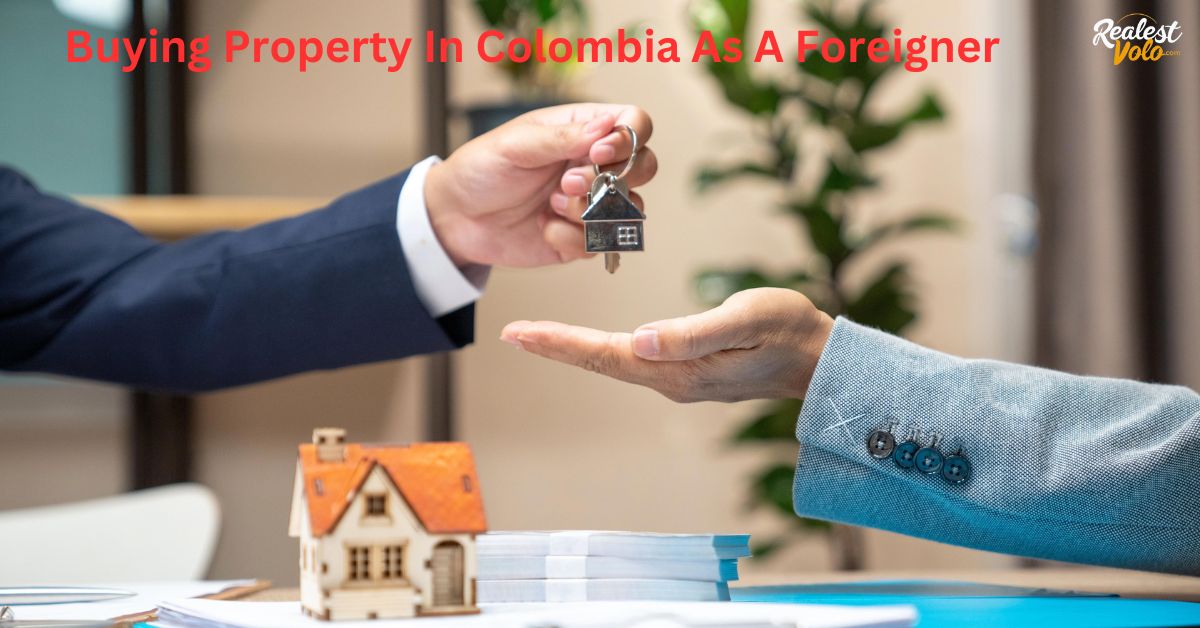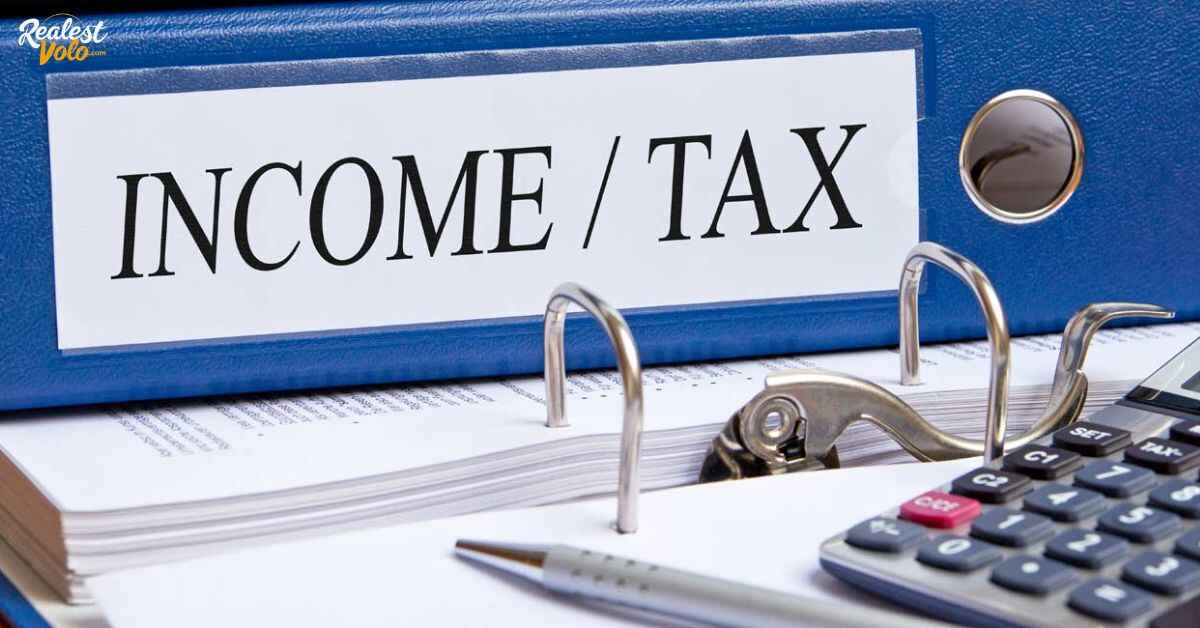Are you considering investing in Colombian real estate as a foreigner? Colombia has emerged as an attractive destination for international buyers and investors, offering a unique blend of natural beauty, rich culture, and economic potential.
In this comprehensive guide, we’ll explore the ins and outs of buying property in Colombia as a foreigner, covering everything from legal requirements to market trends and investment strategies.
Can You Purchase and Own Property in Colombia as a Foreigner?
Absolutely! Foreigners have the same rights as Colombian citizens when it comes to buying, owning, and selling real estate in the country. Colombia’s laws are welcoming to foreign investment, and there are no restrictions on the types of properties non-residents can acquire, whether it’s a home, apartment, commercial property, or land.
Can You Become a Resident in Colombia by Owning Property?
While owning property in Colombia does not automatically grant you residency, it can facilitate the process of obtaining a visa or residency permit. There are two main residency options for foreign property owners:
Migrant (M) Visa
The Migrant (M) Visa is a temporary residency permit that allows you to live in Colombia for up to three years. It is renewable and can be obtained by proving financial solvency, either through a pension, investment, or employment contract.
Resident (R) Visa
The Resident (R) Visa is a more permanent residency option that can be obtained after holding a Migrant (M) Visa for a certain period. It grants you the right to live and work in Colombia indefinitely, subject to periodic renewals.
What is the Process to Buy Real Estate as a Foreigner in Colombia?
The process of buying property in Colombia as a foreigner is relatively straightforward, but it’s essential to follow the proper steps:
- Obtain a Colombian tax identification number (NIT): This unique number is required for all financial and legal transactions in the country.
- Secure financing: If you’re not paying cash, you’ll need to explore financing options, either through a Colombian bank or a foreign lender.
- Find a reputable real estate agent: A knowledgeable agent can guide you through the process and help you find properties that meet your needs.
- Conduct due diligence: Thoroughly research the property, its legal status, and any potential issues or encumbrances.
- Sign the purchase agreement: After negotiations, both parties will sign a legally binding purchase agreement (promesa de compraventa).
- Transfer funds and complete the sale: Once all requirements are met, you’ll transfer the remaining balance to the seller, and the property ownership will be officially transferred to your name.
How is the Real Estate Market in Colombia?
Colombia’s real estate market has been steadily growing in recent years, fueled by a stable economy, increasing foreign investment, and a growing middle class. Here are some key market insights:
Market Data
- Home prices in major cities like Bogotá, Medellín, and Cartagena have been rising at an average rate of 5-8% per year.
- Rental yields in prime areas can range from 5-10%, making Colombia an attractive option for income-generating investments.
- The luxury market has seen significant growth, with high-end properties in prime locations being in high demand among foreign buyers.
The Life as an Expat
Colombia offers a high quality of life for expats, with a lower cost of living compared to many developed countries. Major cities boast modern infrastructure, excellent healthcare facilities, and a vibrant cultural scene. Additionally, the country’s diverse landscapes, from pristine beaches to the Andes mountains, provide ample opportunities for outdoor activities and exploration.
What are the Best Places to Buy Real Estate in Colombia?
Some of the most sought-after locations for foreign buyers include:
- Bogotá: The capital city offers a cosmopolitan lifestyle, with a thriving business district and a wide range of cultural attractions.
- Medellín: Known as the “City of Eternal Spring,” Medellín is a modern and vibrant city with a growing expat community.
- Cartagena: This historic coastal city is renowned for its colorful colonial architecture, beaches, and vibrant nightlife.
- Coffee Region: The lush coffee-growing regions, such as Armenia and Pereira, offer a peaceful and picturesque setting for those seeking a more tranquil lifestyle.
Do You Need a Lawyer to Buy Property in Colombia?
While it’s not legally required, hiring a reputable Colombian lawyer is highly recommended, especially for foreign buyers. A lawyer can ensure that all legal requirements are met, protect your interests during negotiations, and provide valuable guidance throughout the entire process.
What Are the Risks When Buying Real Estate in Colombia?
Like any investment, buying property in Colombia comes with potential risks that should be carefully considered:
1. Land Ownership and Property Rights
It’s crucial to thoroughly verify the property’s legal status, ownership history, and any potential disputes or encumbrances. Hiring a professional to conduct a thorough title search can help mitigate this risk.
2. Security and Safety Considerations
While Colombia’s security situation has improved significantly in recent years, it’s important to research the specific area you’re considering and take necessary precautions.
3. Regional Climate and Natural Disasters
Different regions of Colombia are prone to various natural hazards, such as earthquakes, flooding, or landslides. Understanding the local climate and risk factors is essential.
4. Infrastructure and Accessibility
Some areas may have limited infrastructure or accessibility, which could impact the property’s value and your overall living experience.
5. Local Laws and Regulations
Familiarize yourself with local laws and regulations regarding property ownership, construction, and zoning, as they may differ from your home country.
6. Cultural and Language Differences
Navigating a foreign culture and language can pose challenges, especially during legal and financial transactions. Consider hiring a translator or working with professionals fluent in both languages.
7. Investment Potential and Market Dynamics
As with any real estate investment, there are no guarantees of appreciation or rental income. Carefully research and monitor market trends to make informed decisions.
What is the List of Documents Needed for a Real Estate Transaction in Colombia?
To complete a property transaction in Colombia, you’ll typically need the following documents:
- Passport or identification documents
- Colombian tax identification number (NIT)
- Proof of financial solvency or income
- Property title and ownership documents
- Purchase agreement (promesa de compraventa)
- Certificate of freedom and tradition (certificate of clear title)
- Building plans and permits (if applicable)
- Appraisal report
- Tax payment receipts
What Strategies Should You Employ for Successful Negotiations with Colombians?
Effective negotiation skills can go a long way in securing a favorable deal when buying property in Colombia. Here are some strategies to consider:
- Build rapport: Establishing a personal connection and demonstrating respect for Colombian culture can help build trust and facilitate negotiations.
- Be patient: Colombian business culture often moves at a slower pace. Avoid rushing the process and be prepared for extended negotiations.
- Understand cultural nuances: Learn about common Colombian negotiation styles, body language, and communication patterns to better navigate the process.
- Seek local expertise: Enlist the help of a local real estate agent or lawyer who understands the local market and can provide valuable insights.
- Maintain flexibility: Be open to compromise and creative solutions, as negotiations often involve give-and-take from both parties.
- Prioritize relationships: In Colombian business culture, building long-term relationships is often prioritized over short-term gains.
Can Foreigners Obtain a Bank Loan in Colombia?
Yes, foreigners can obtain bank loans in Colombia for the purpose of buying property. However, the requirements and processes may vary depending on the bank and your specific circumstances. Here are some key points to consider:
- Residency status: Having a valid residency visa or permit can improve your chances of securing a loan, as it demonstrates your long-term commitment to the country.
- Income and employment: Banks will typically require proof of stable income, either from employment or other sources like investments or pensions.
- Down payment: Most banks in Colombia require a down payment of at least 30% of the property’s value.
- Credit history: Having a good credit history, either in Colombia or your home country, can strengthen your loan application.
- Property appraisal: The bank will likely require an independent appraisal of the property you intend to purchase.
- Additional requirements: Some banks may ask for additional documentation, such as proof of assets, tax returns, or references from your home country.
What Are the Taxes Related to a Property Transaction in Colombia?
When buying property in Colombia, it’s essential to understand the various taxes and fees involved in the transaction.
Here are the main taxes you should be aware of:
Transfer Tax (Impuesto de Registro)
The transfer tax, also known as the registration tax, is a one-time fee paid to the local municipality when transferring the property’s title. The rate varies by region but typically ranges from 0.5% to 2% of the property’s value or purchase price, whichever is higher.
Value-Added Tax (VAT) / Sales Tax
In Colombia, the value-added tax (VAT), or sales tax, is applied to the purchase of new properties or properties under construction. The current VAT rate is 19% of the property’s value or purchase price.
It’s important to note that the sale of used or existing properties is generally exempt from VAT, making it a more cost-effective option for many foreign buyers.
Income Tax
If you’re a non-resident of Colombia and plan to generate rental income from your property, you may be subject to income tax on those earnings. The tax rate for non-residents is typically 33% on net rental income.
If you become a resident of Colombia, you’ll be subject to the same income tax rates as Colombian citizens, which can be more favorable depending on your income level.
Municipal Taxes
Depending on the municipality where your property is located, you may be required to pay additional local taxes, such as real estate tax (impuesto predial) and property valorization tax (contribución de valorización).
It’s essential to consult with a local tax professional or lawyer to understand your specific tax obligations and ensure compliance with all relevant regulations.
What Fees Are Involved in a Property Transaction in Colombia?
In addition to taxes, there are various fees associated with buying property in Colombia. Here are some of the most common fees to be aware of:
1. Real Estate Agent Fees
Real estate agent fees in Colombia are typically paid by the seller and range from 3% to 6% of the property’s sale price. However, it’s always a good idea to clarify the fee structure upfront.
2. Notary Fees
The involvement of a notary public is required for most real estate transactions in Colombia. Notary fees can vary depending on the property’s value but generally range from 0.3% to 1% of the purchase price.
3. Title Registration Fees
After the sale is complete, the new property owner must register the title transfer with the local public registry office. The registration fees typically range from 0.5% to 1% of the property’s value.
4. Appraisal Fees
An independent property appraisal is often required by lenders or for tax purposes. Appraisal fees can vary depending on the property’s size and location but generally range from $200 to $500 USD.
5. Legal Fees
While not mandatory, it’s highly recommended to hire a Colombian lawyer to assist with the property transaction. Legal fees can vary based on the complexity of the case and the lawyer’s experience but typically range from 1% to 3% of the property’s value.
6. Property Management Fees (if applicable)
If you plan to rent out your property, you may need to hire a property management company. Their fees typically range from 8% to 12% of the monthly rental income.
It’s crucial to factor in these fees when budgeting for your property purchase to avoid any unexpected costs during the transaction process.
Frequently Asked Question
Can Foreigners Legally Own Property In Colombia?
Yes, foreigners have the same property rights as Colombian citizens.
What Is The Process For Buying Property As A Foreigner?
Obtain a tax ID, secure financing, find an agent, do due diligence, sign purchase agreement, complete transfer.
Do I Need To Hire A Lawyer When Buying Property In Colombia?
While not required, it is highly recommended to hire a reputable Colombian lawyer.
Can Owning Property In Colombia Help Me Obtain Residency?
Yes, it can facilitate obtaining a temporary or permanent residency visa/permit.
What Are Risks When Buying Property In Colombia As A Foreigner?
Risks include land ownership issues, security, natural disasters, infrastructure, unfamiliar laws/regulations, cultural barriers, market fluctuations.
Final Words
Buying property in Colombia as a foreigner can be a rewarding investment opportunity, offering potential for capital appreciation, rental income, and an excellent quality of life. However, it’s essential to navigate the process carefully, conduct thorough due diligence, and seek professional guidance to mitigate risks and ensure a successful transaction.
By understanding the legal requirements, market dynamics, and cultural nuances, you’ll be better equipped to make informed decisions and capitalize on the opportunities presented by Colombia’s thriving real estate market.
Remember, patience, attention to detail, and a willingness to adapt to local customs and practices can go a long way in achieving your goals as a foreign property owner in this beautiful and vibrant country.















